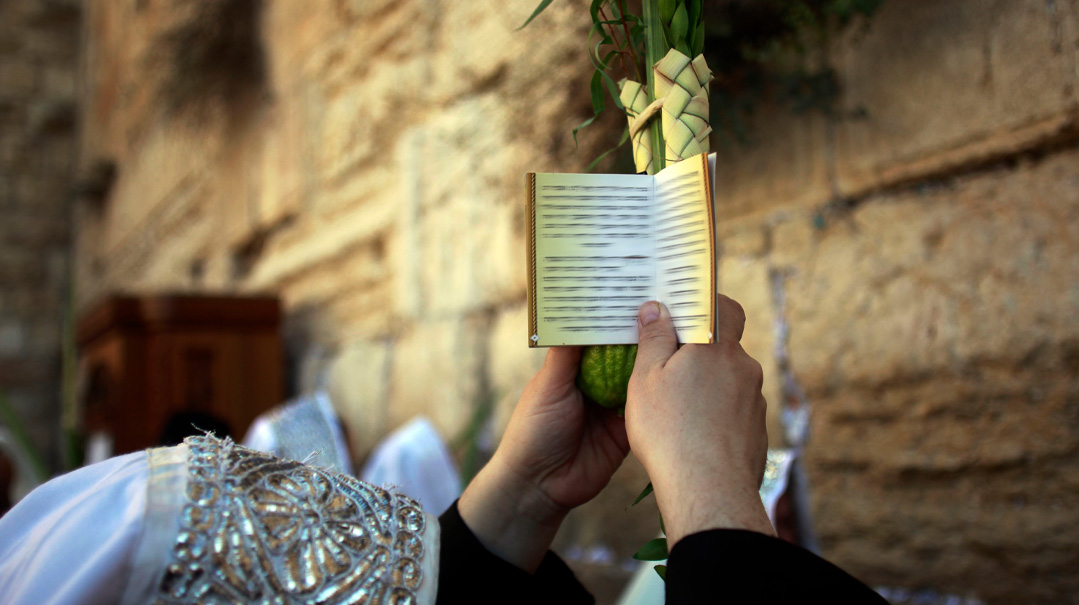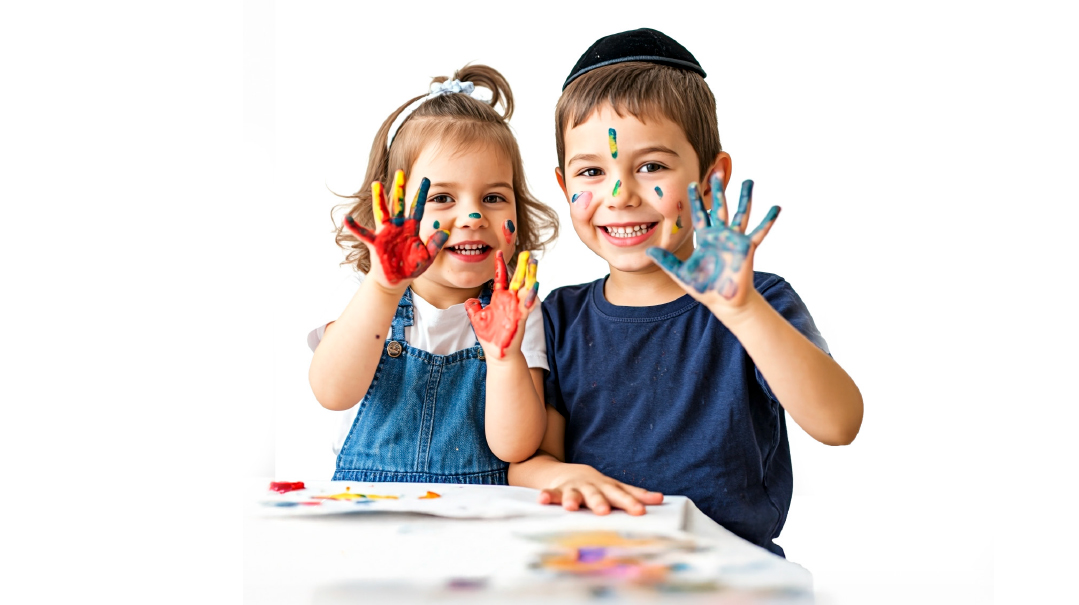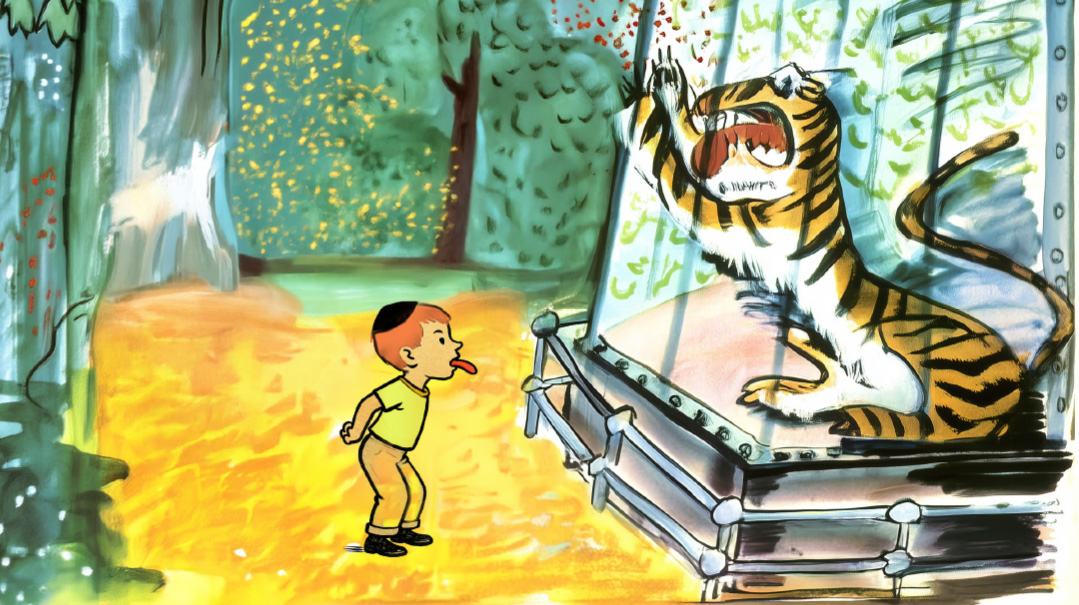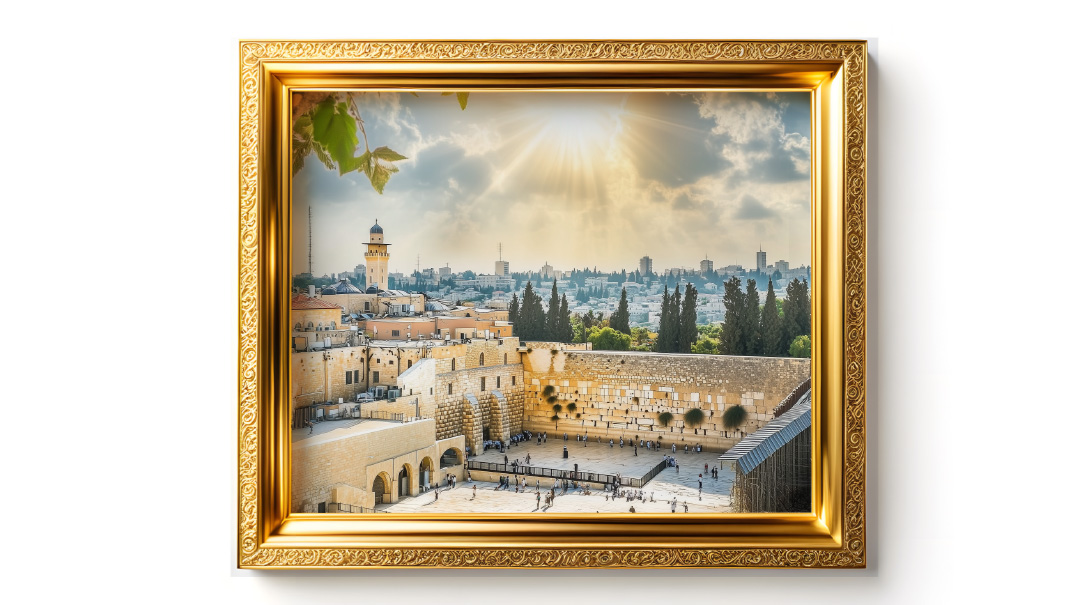A Surrender of Love
| October 6, 2022What would tomorrow be like, far from my family, far from my shul, in the hospital on Hoshana Rabbah?

“Girls, if there’s one thing you do, go to shul on Hoshana Rabbah.”
Sitting in the hospital, staring into my newborn baby’s eyes on Erev Hoshana Rabbah, the words of my high school principal replayed in my mind.
Growing up in Brooklyn, I never thought much of Hoshana Rabbah. We said a few extra paragraphs in davening and banged the hoshanas on the dining room floor, making a big mess for my mother to clean up. But other than that, it was a regular day of Chol Hamoed; we’d either be bored, complaining that everyone else did fun things, or go somewhere with family or friends.
I remember almost nothing else from my principal, but that line made its mark. I went to shul that Hoshana Rabbah, and I’ve been there every year since. Watching the men encircling the bimah and beseeching Hashem for everything good as they held their arba minim was a powerful experience. Few women were in shul, and I loved getting caught up in the energy of this hidden holy day.
Now, my newborn began to fuss, and I held her close. What would tomorrow be like, far from my family, far from my shul, in the hospital on Hoshana Rabbah? I tried unsuccessfully to hold back the tears, unsure what it was that made me cry.
What was wrong with me? I had a beautiful healthy baby. Nothing at all to complain about. My husband was home taking care of my other kids, and I was supposed to be resting. Surely Hashem didn’t need me to go to shul this year!
But… I wanted to feel the intensity of the day, and it would be hard to achieve that alone. I needed so much… and Rosh Hashanah and Yom Kippur in my ninth month had been tired and shleppy — not the pinnacle of prayer and purity. Was I going to let this last chance to beg for a good judgment slip through my fingers?
I put the baby in the hospital crib and cuddled under my blankets. In my mind’s eye, I saw my childhood succah — canvas walls on a metal frame, decorated with paper chains and assorted pictures. I pictured myself in my long purple down coat, serving stuffed cabbage to my grandfather.
Suddenly, I was older, in the succah of our first apartment, where my husband and I built our lives and our dreams together. That one had just a tiny patch of roof that opened up for sechach.
The image changed again. This time, I saw our wooden succah, filled every year with our growing family, each child’s creation carefully put up in a place of honor for guests to admire.
Another image. I was 19 years old, spending shanah beit as a madrichah in Israel. It was Leil Hoshana Rabbah, and the girls were looking for a chavayah. We decided to arrange a van to take us to the Kosel for neitz. We spoke about the silence that would accompany the moment of sunrise, about the men wearing kittels and long white beketshes, about the holiness as we’d bang our hoshanas together with thousands of Jews who’d come from all over the world for this special privilege.
Our few hours of sleep that night were laced with spiritual excitement — tomorrow, neitz at the Kosel on Hoshana Rabbah. What could beat that?
At four a.m., we pulled our hoodies tight, shivering in the darkness, awaiting the van’s arrival. As the girls piled in, we realized that somehow our count was off, and we had one too many passengers. We begged the driver, but to no avail. Someone would have to get out of the van. After waking up so early, who would want to miss this incredible opportunity?
“Come with me,” one of the girls said to me. “There’s a shul close by. I’m sure we can get the neitz minyan there.”
I was the madrichah, and I knew it was the right thing to leave the van. I followed her reluctantly. We entered the women’s section, which was surprisingly packed with women holding machzorim, aravos at their sides. Many were dressed in white. It was Yom Kippur all over again. I began davening, the energy of the room pulling me in.
I was mumbling the unfamiliar words of the hoshanas when the tears of the woman next to me awoke emotion from a very deep place. A place not of abandoning the spiritual chavayah of davening at the Kosel, but a place of davening to Him for Him. Not for me and my plans. For Him and for His plans.
Dawn turned to day, and as I banged my aravos on the floor together with those women dressed in white, I felt connected with the thousands davening in every corner of the world.
My baby’s cries brought me back to my hospital room.
I wiped away a tear as I lifted my baby from the bassinet. Tomorrow I would be privileged to hold my baby, my machzor, and my aravos here in the hospital. I would daven to Him, for Him, together with all of the Jewish people. I would bang my aravos on the floor, in surrender — not of abandonment, but of love. What greater privilege could there be?
(Originally featured in Family First, Issue 813)
Oops! We could not locate your form.







